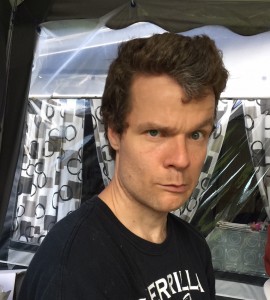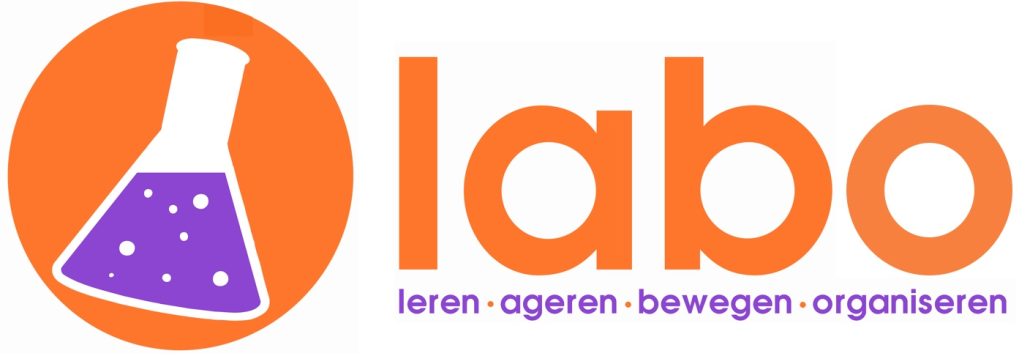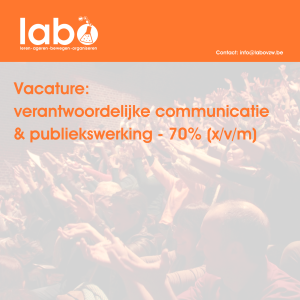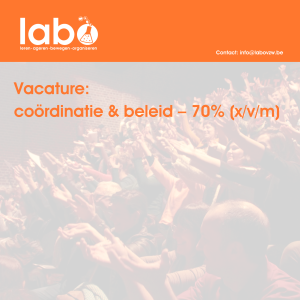
Nonni, thank you for writing this!
This workshop would be in Dutch
Recently I went to a White Privilege workshop hosted by LABO. My girlfriend was invited but she was busy. So I went instead. I’m new in Gent so this was the perfect opportunity to meet people and engage in a dialogue about privileges in multicultural societies.
When I arrived, I was approached by people of different backgrounds. All of them spoke Dutch so I got the feeling that this workshop would be in Dutch. This would change the dynamics a bit since my Dutch level is pretty low. Luckily, the group checked if there were people present who didn’t speak Dutch. A young woman helped me to understand what was being said.
The evening started off with food and drinks. I opened up a wrap of Yogi tea and looked at the quote that said: “ Say it straight, simple and with a smile”. I didn’t really give it too much thought right there in that moment. That, however, would soon change …
Racist when they are not present
The workshop consisted of several assignments. We were working both independently, in pairs and in groups. But all the assignments had one thing in common: we were dealing with privilege from different standpoints.
I could probably write a whole book about all the assignments in the workshop but I want to focus on the last assignment we were given. After over two hours of different dialogues, confrontations and self-reflection we were divided up in groups. Our assignment was to share our experiences of being present in a group of people of different color where racist remarks had been made.
The only story I had to share was when I was 16 years old and, at that point, I was a young teenager with a worldview that wasn’t really determined. On the other hand, I DO have a lot of stories to share when being exposed to racist remarks about certain minority groups or ethnic groups – basically groups that are not considered to be white – while they are NOT present when those remarks are made.
I’ve been thinking about this since I left the workshop a month ago.
“Would I confront a racist remark in a job interview?”
As bystanders, how do we deal with racist remarks around or in the absence of people of different shades? Should we always be confrontational? Or is there a threshold on where the confrontation starts? How serious does someone’s remark need to be for me to confront it?
I guess it depends on how we feel about the privilege we have.
Do we take advantage of it regardless of how we feel about racism? Or are we willing to sacrifice all the benefits it gives us in certain circumstances? Would I confront a staff manager with a racist remark in a job interview? I would most certainly not get the job and probably be asked to leave.
If we enjoy the benefits, then we should probably keep quiet, put up a vague smile or nod our head just a bit to not put the negotiations at risk. But those benefits come at a cost.
From a “Rights and Duties” perspective, I think we should NOT be entitled to put the “Against Racism” pin on our shirt in any circumstances if we do not plan to be vocal against it in any situation. Be it a birthday party or family dinner.
Say it straight, simple and with a smile
At this point the quote from the Yogi tea came to mind: “say it straight, simple and with smile”. When it comes to confronting racism in everyday situations, it is something you always have to confront. Even if the confrontation is only in the form of a question or as a request for a better explanation of the racist remark. A confrontation doesn’t have to be hostile.
I’m certainly very guilty of “keeping the peace” and of not being vocal in every situation but that needs to change. As an advocate of rights to equality and non-discrimination I should be ready to reject the benefits of “keeping the peace”.
How can I accept these privileged benefits but at the same time be against them? If I do, I at least need to get a new pin on my shirt that says “I’m a Hypocrite”.
Ontdek ook Liesbeths ervaring met ‘white privilege’: “Ik voelde me nooit een slachtoffer”
Of bekijk ons vormingsaanbod en vraag vrijblijvend een offerte aan.








